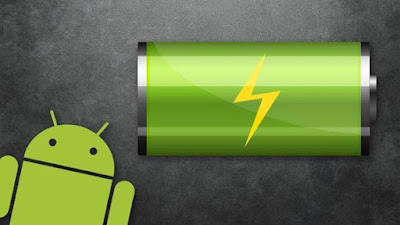Intro:
One of the biggest questions facing smartphone users today is which operating system to choose for their device – Android or iPhone? It’s one of the most hotly debated topics in tech, and there are some clear advantages and disadvantages to both platforms. Let’s take a look at the pros and cons of each operating system so you can figure out which one might be best for your needs. Many people have been wondering whether Android or iPhone is the best smartphone to buy, and the answer to this question isn’t cut and dry. It all depends on what you need it for and which features are most important to you. Read on to learn more about the pros and cons of both of these mobile operating systems so you can make an informed decision when choosing your next smartphone.

Cost:
Android phones are generally cheaper than iPhones. For example, the latest iPhone SE starts at $399 with a two-year contract, whereas the newest Android phone (Samsung Galaxy S9) starts at $720. However, some people may not want to spend more on an Android phone because they are used to iOS and don't want to switch over. When it comes to the two biggest players in the mobile market, Android and iPhone, there are a few factors that you should take into consideration before making your decision. The first factor is cost. With an Android phone, you can get an entry-level device for as little as $100. Meanwhile, with an iPhone, you’ll need to spend around $400 on a device to get started. On top of that, iPhones are only available through Apple and their various carrier partners so if you want to go with something different than AT&T then it might cost you more money upfront. In general, though not always, Android phones tend to be cheaper than iPhones and offer more bang for your buck in terms of features and performance.

User-friendliness:
This has been a long-standing debate and the answer will vary depending on what you need your device to do. Android devices are typically better when it comes to customization, while iPhones are known to be more user-friendly. If you're looking to start a business, your phone should be reliable and easy to use so that you don't miss anything important during the day. For this reason, an iPhone would most likely be better for you.
App availability:
When you get an Android phone, you'll find that it has access to more than two million apps in the Google Play Store. Android phones are also compatible with a much wider range of carriers and hardware manufacturers, which means that there's more variety out there when it comes to choosing your phone. On top of all this, Android phones tend to come with a less expensive price tag.

Hardware:
These days, it seems like everyone has an opinion on what smartphone they should use. After all, your phone can be used for almost anything these days, from managing your schedule to editing a presentation at work. There are so many options out there to choose from that it can be hard to figure out which one will be the best for you. In this post, we'll break down the different features of Android and iOS and help you decide which one might be best for you.

Software Updates:
If you're an Android user, you'll be happy to know that your device will typically receive software updates more quickly than an iPhone. However, that's not always the case. Apple has a strict quality assurance process, which means they won't release updates until they're sure they won't cause any major bugs. This can sometimes lead to up to three months of waiting before you see a new update on your phone.
Customizability:
One of the biggest differences between the Android and iOS operating systems is how customizable they are. iPhones only come in two models, meaning that you can't pick and choose which features to have. Android phones, on the other hand, come in a variety of shapes, sizes, and price points, so you can pick whichever one best suits your needs.
Battery Life:
The battery life on both devices is about the same. The only difference is that Android phones can be charged wirelessly, but iPhones can't. It's also important to consider what wireless charging system your charger uses as well; Samsung has its own standard, Qi and so does Apple with AirPower which will likely not support other manufacturers' devices (Samsung).

Security:
One of the first things you should do before choosing an Android or iPhone is to think about your security needs. If you're the type of person who likes to share a lot on social media, then an Android may be best for you. But if you want more privacy and encryption, then an iOS device might be right. With such different schedules in place, it can make it harder to decide which one is better suited to you. If you want your phone to be as secure as possible, you'll need a passcode. This can be either a number code, like 0000, or an alphanumeric code of your own choosing. You'll also want to make sure your phone has settings like Find My Phone and Remote Wipe enabled. Plus, set up alerts if anyone tries to log into your device without your password. These are all things that Android has going for it right out of the box. iPhone doesn't have any of this stuff by default and will require additional steps on the user's part.

Conclusion:
The final decision will come down to what type of phone you want and what operating system you prefer. If you don't mind an Android phone, the iPhone is probably not the best option. On the other hand, if you're looking for a phone that allows more freedom and customization of your device (including installing different apps), then an Android might be a better choice.

.png)



